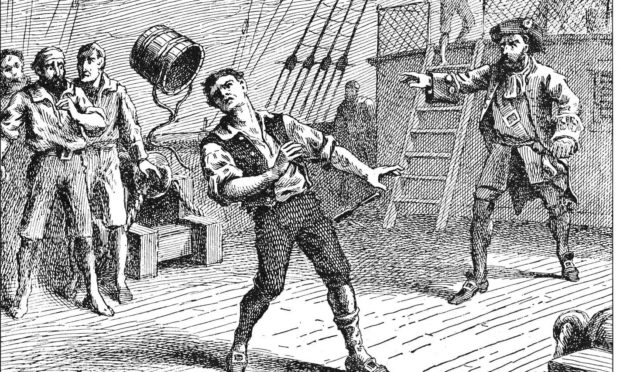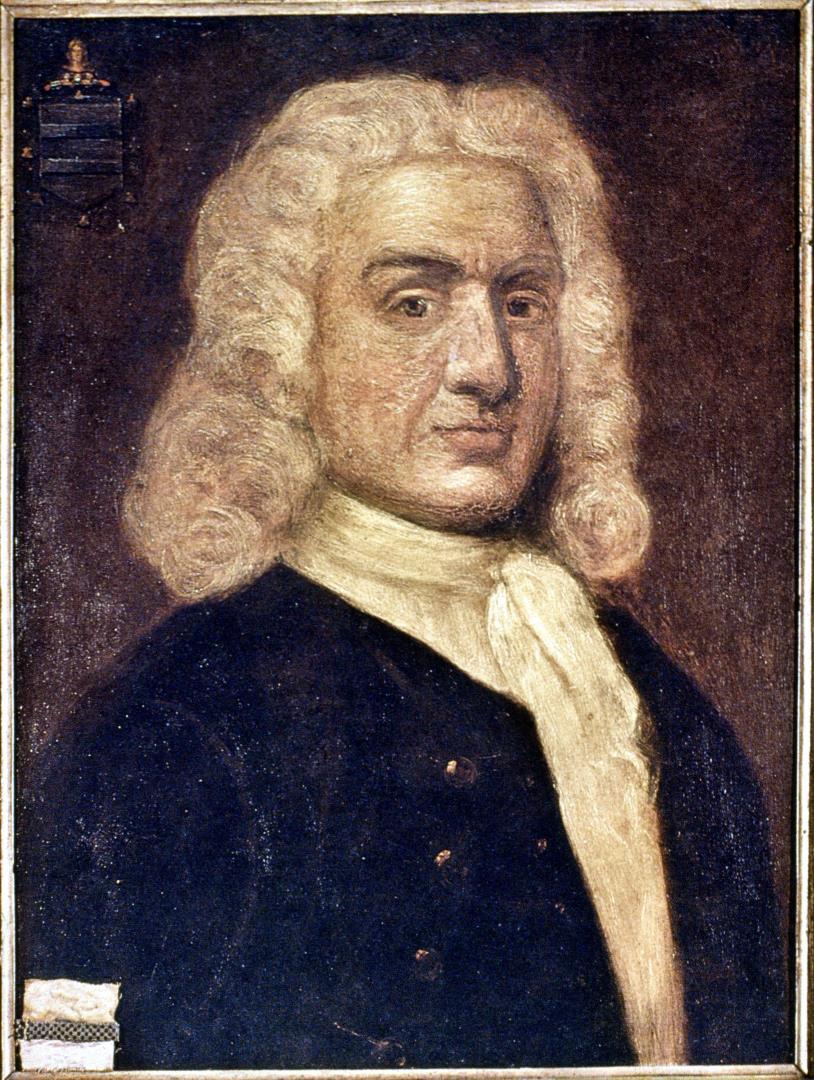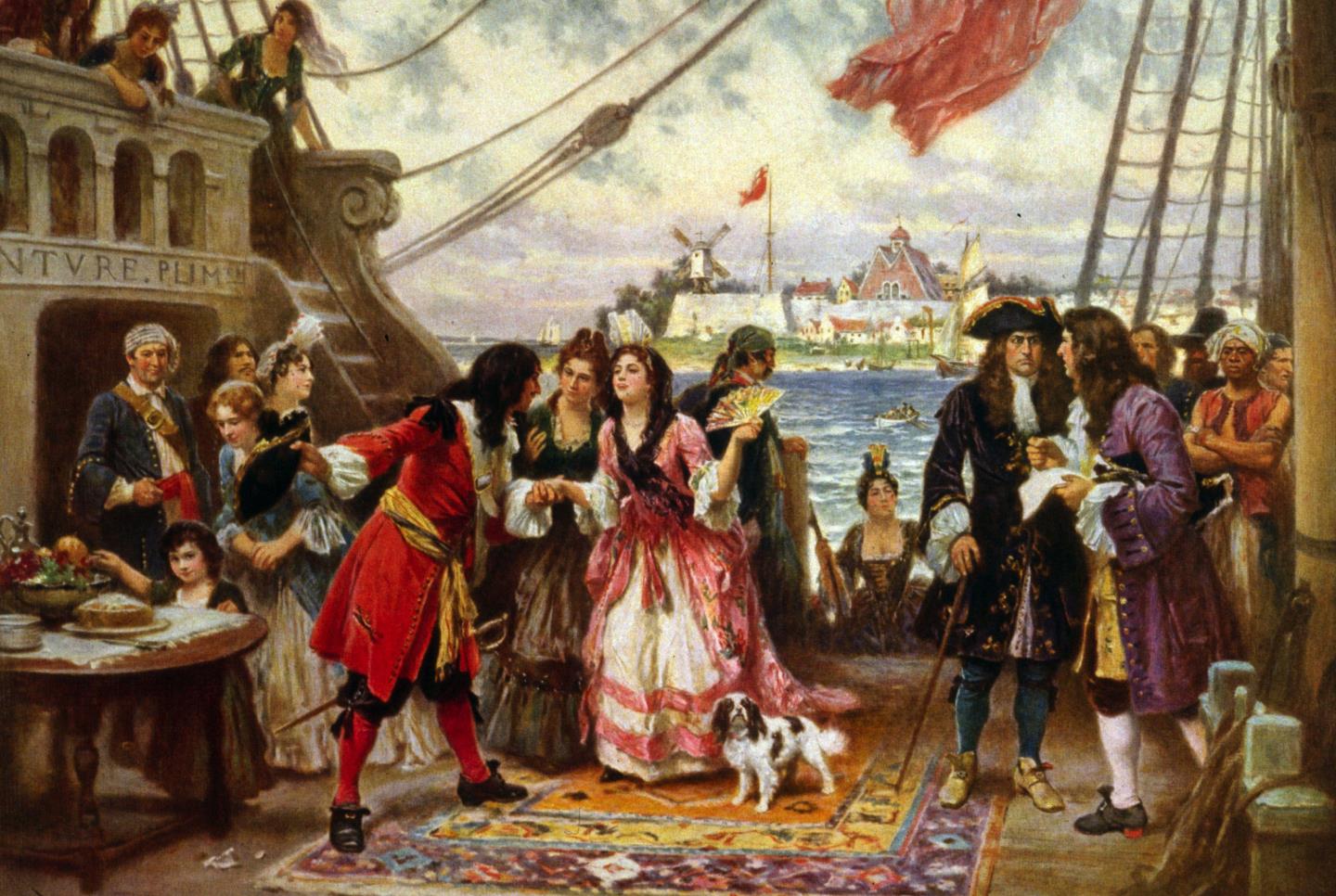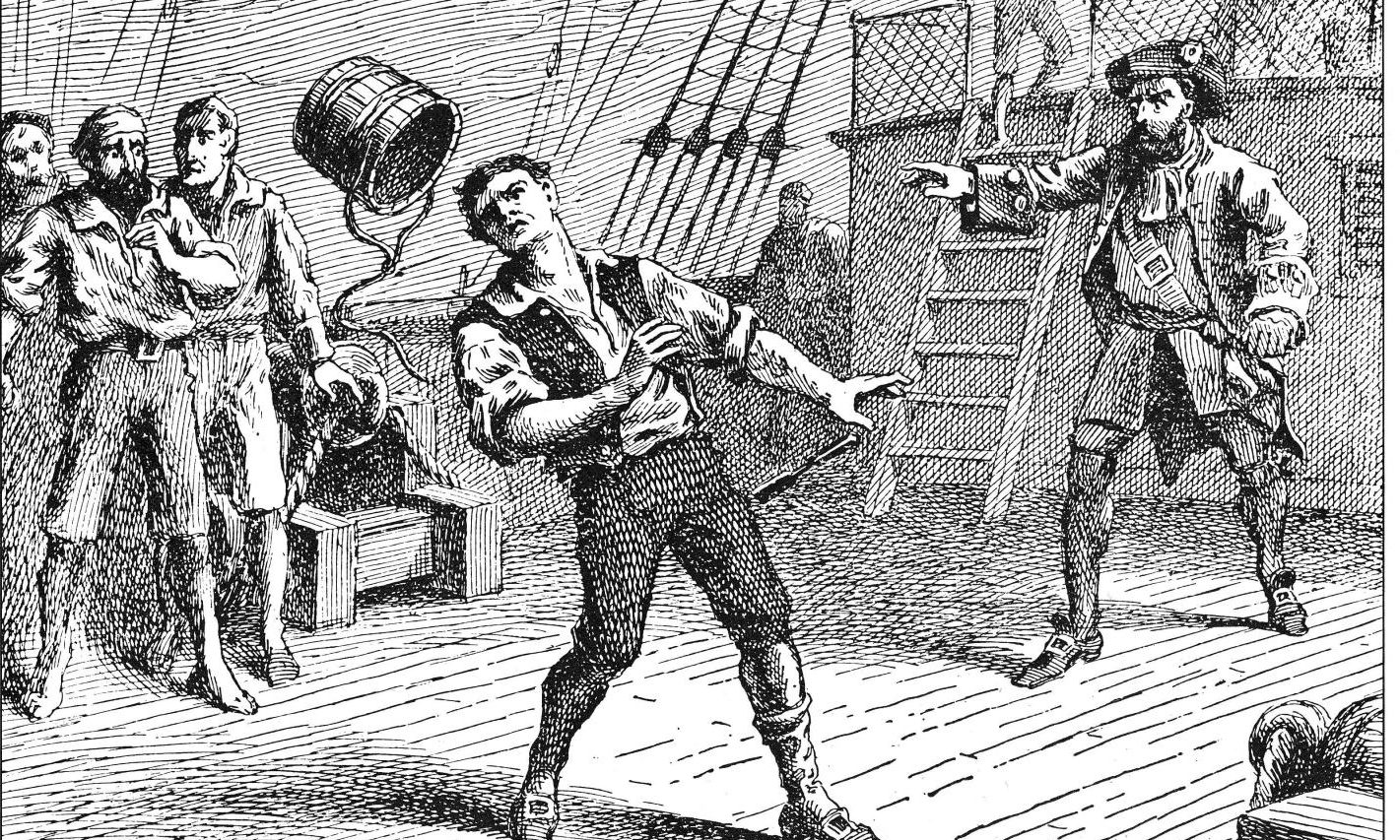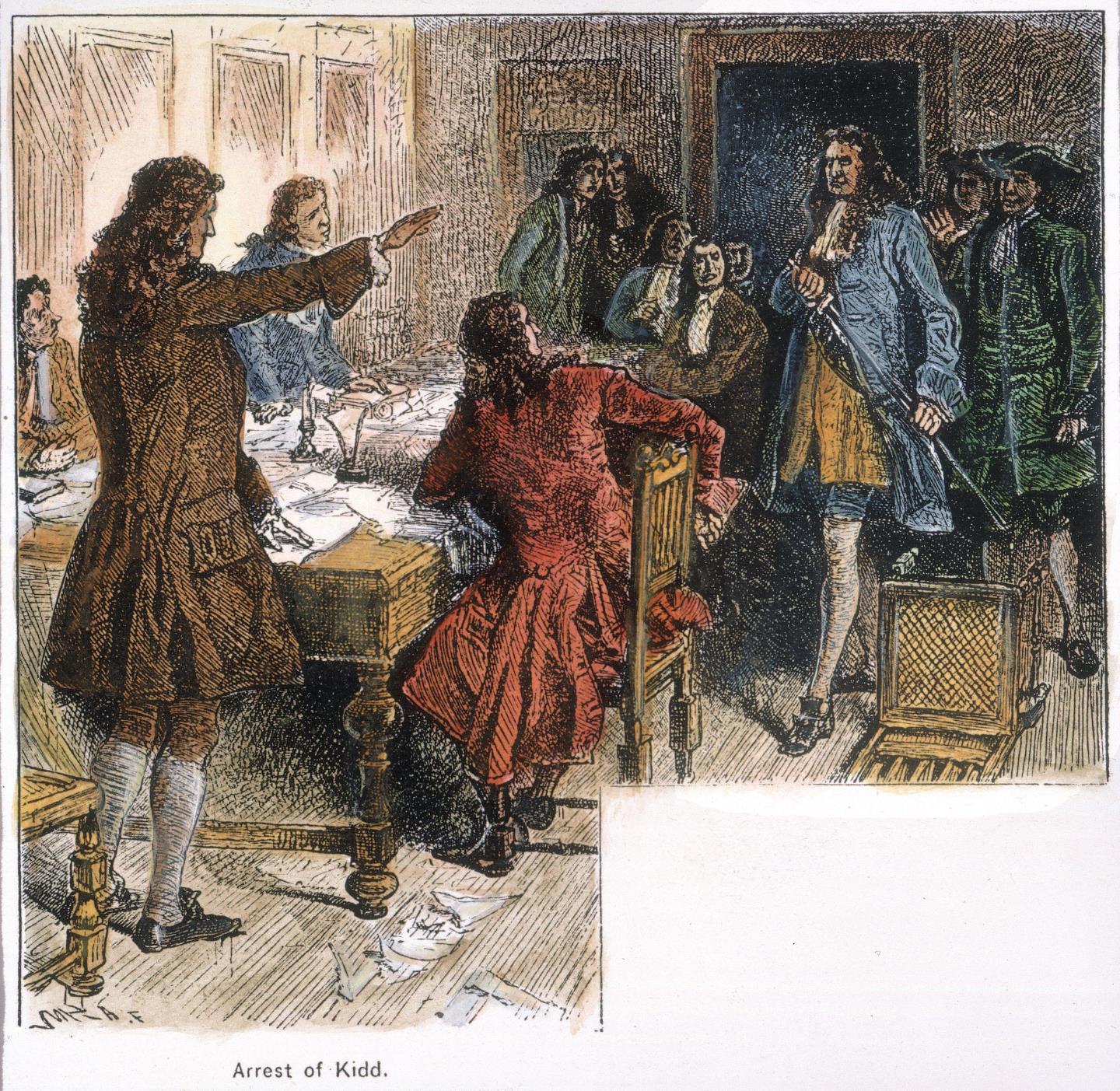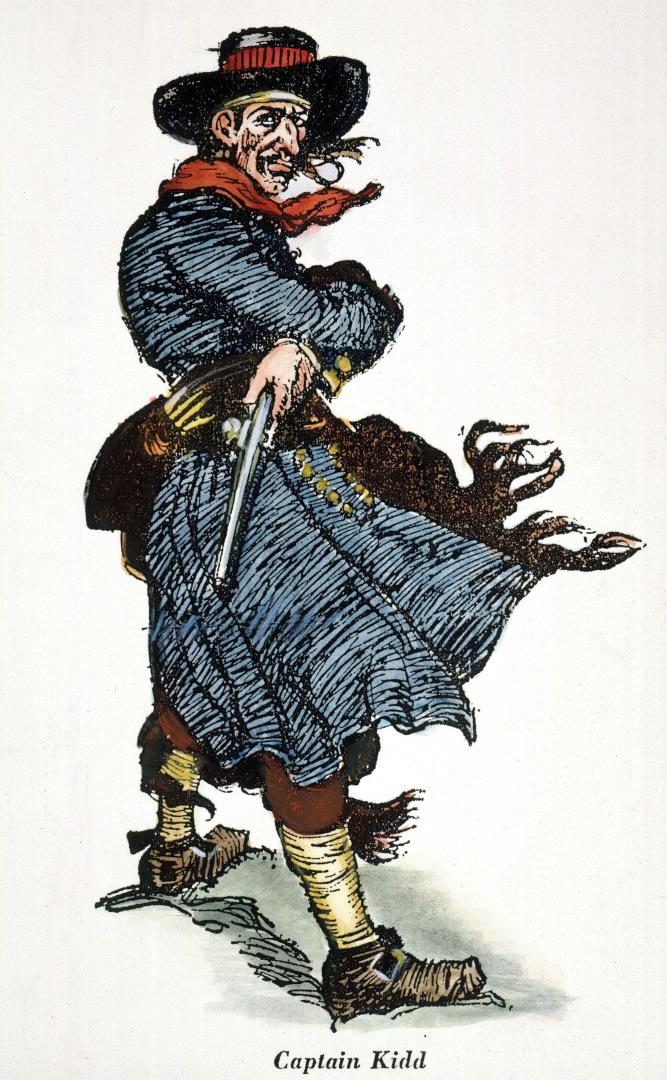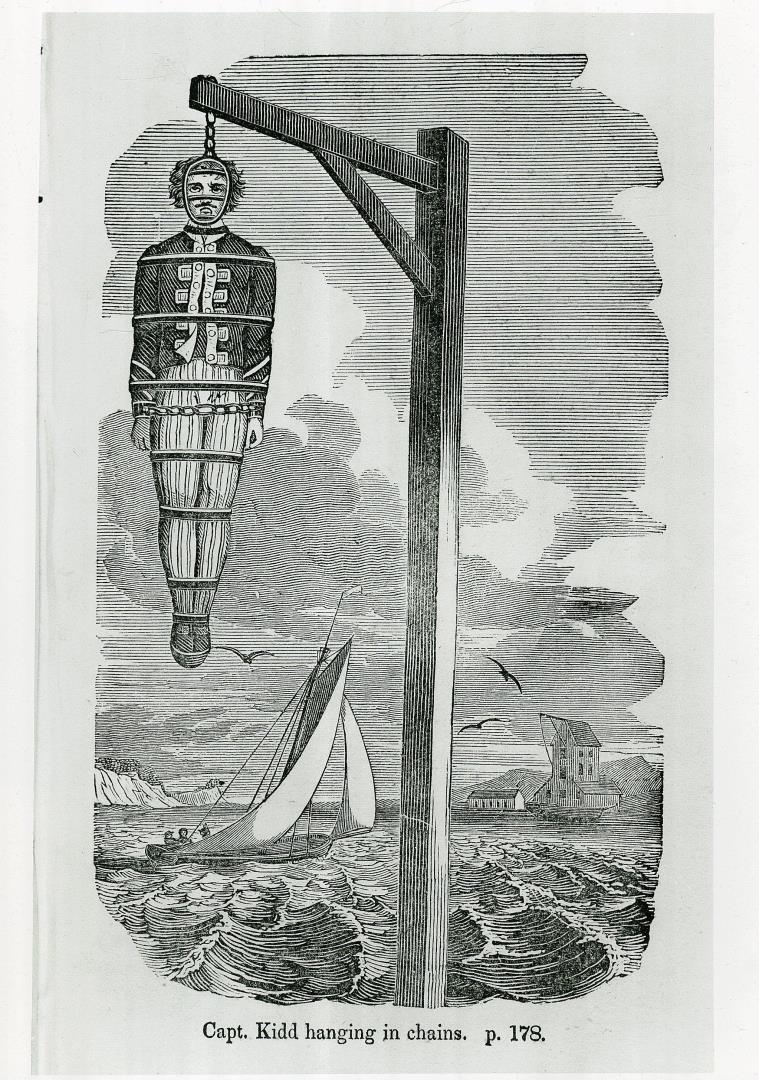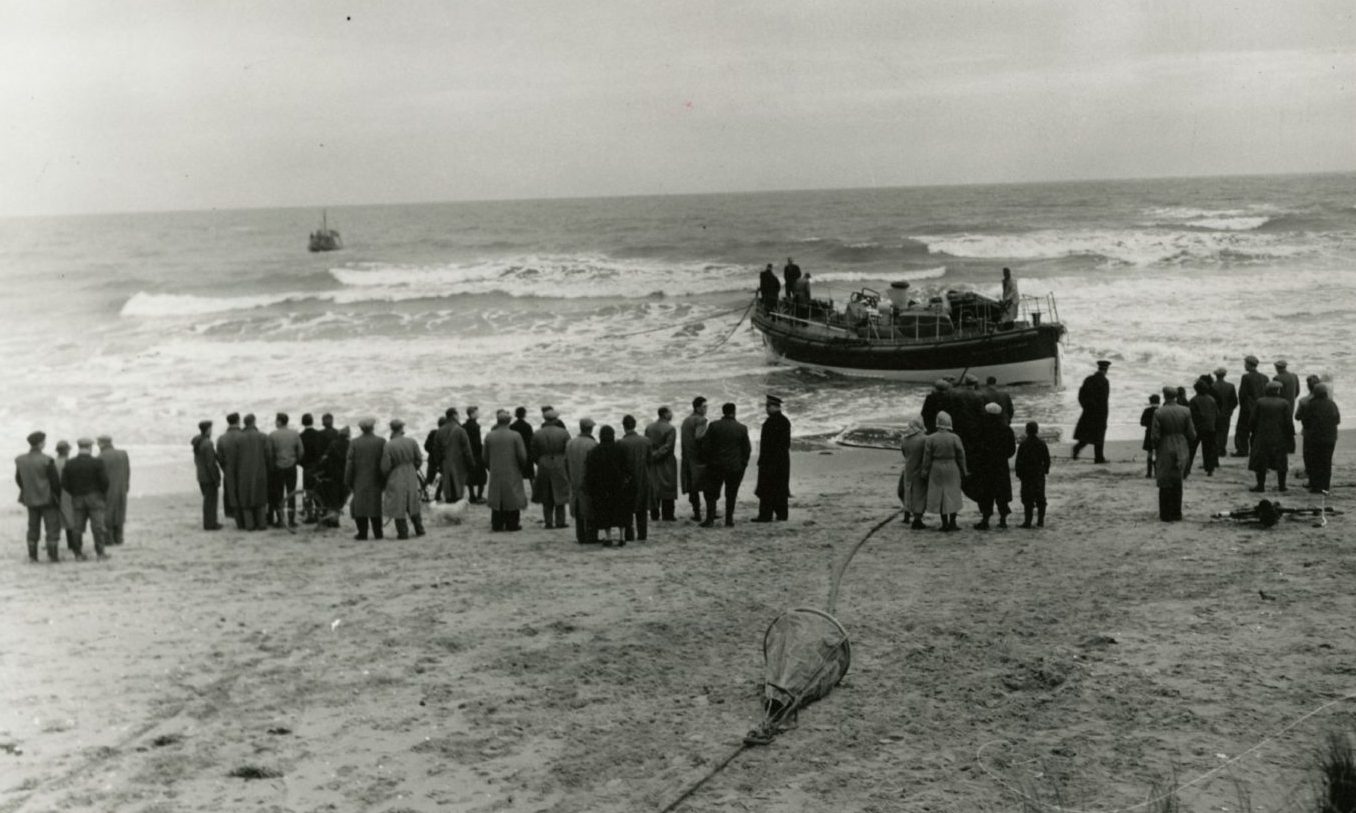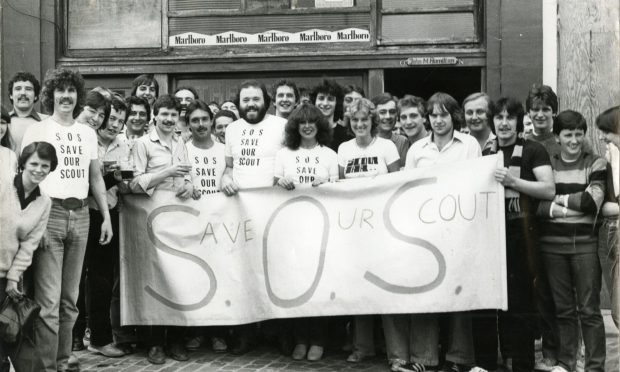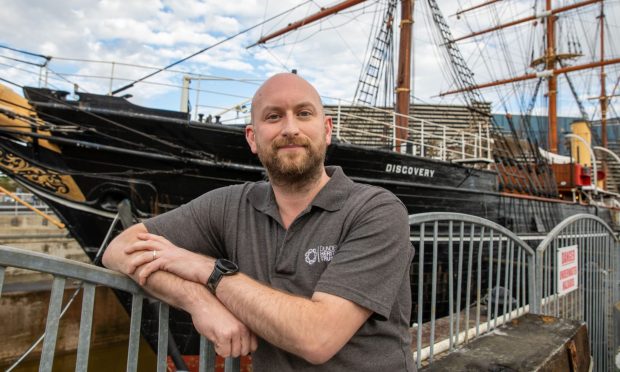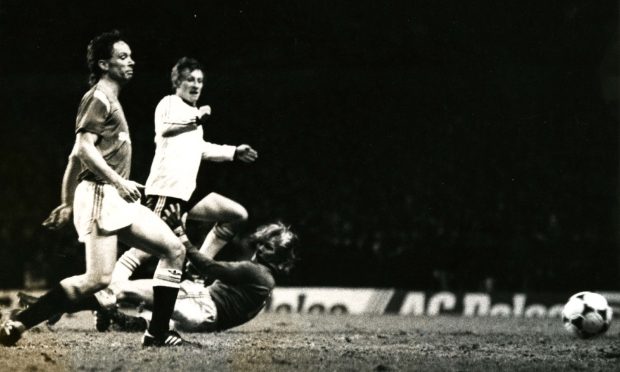In May 1701 Dundee-born Captain William Kidd was executed in London after he was convicted of being a pirate, despite beginning his career as a privateer capturing villains of the sea.
He was executed in London after his arrest in Boston however documents proving his innocence would be seemingly lost until 200 years after his death.
But who was Captain Kidd and was he really a villain of the high seas or was he an innocent privateer who was betrayed by some of his closest allies?
Born in Dundee
William Kidd was born in 1654 in Dundee although his birthplace has often been contended, with some believing he hailed from Greenock. Written testimony given by Kidd to the High Court of Admiralty in 1695 however states: “William Kidd of the city of New York in America where he has lived for space of six years, originally from Dundee in the Kingdom of Scotland, 41 years of age”.
Dundee’s baptismal records also show him being baptised in the city following the death of his seaman father, John, when William was just five years old. The Fraternity of Masters and Seamen in Dundee also paid a pension to John’s widow Bessie Butchart which is said to have helped to put William through schooling.
Following the death of his father it wouldn’t be long before William would take to the seas himself and he became a sea captain with his first ship being the Antigua and he emigrated to New York City, which had been taken from the Dutch by the English, in the 1680s.
It was there that he would meet and marry Sarah Bradley Cox Oort in 1691. Sarah was an English woman in her early twenties who had already been twice widowed and had become one of the wealthiest women in New York, based on an inheritance from her first husband.
Becoming a privateer
During the war between England and France in the 1690s, Kidd became a successful privateer in charge of the vessel Blessed William, defending American and English trade routes with the West Indies.
The English Government had procured Captain Kidd to take charge of an expedition against pirates in the Indian Ocean. His mission was to rid the sea of pirates, but it was also understood by his backers that he would also take every opportunity to capture any enemy ships that had valuable cargo.
Later, during the War of the Grand Alliance, on commissions from New York and Massachusetts Bay, Kidd captured an enemy privateer off the New England coast and was awarded £150 for successful privateering in the Carribbean shortly afterwards.
The next year, Captain Robert Culliford, a notorious pirate, stole Kidd’s ship while he was ashore at Antigua in the West Indies.
In 1695, King William III of England appointed Richard Coote, 1st Earl of Bellomont as governor of New York in place of the corrupt Benjamin Fletcher, who was known for accepting bribes to allow illegal trading of pirate loot.
On 6 September 1696, Kidd and a crew of 150 men left New York aboard the 32-gun Adventure Galley, bound for the Indian Ocean.
One of the pirates he set out to capture was the aforementioned Robert Culliford, who sailed with a surgeon named Jon Death.
Culliford is said to have ordered his men to load their cannons with china dishes, as the china shards would shred the sails of the ships that he was attacking.
Privateer turned pirate?
The mood of Captain Kidd’s crew soon turned ugly though and mutiny was in the air. In a furious rage Captain Kidd struck his ship’s gunner, William Moore, with an iron-bound bucket, fracturing Moore’s skull, leaving him dead within 24 hours.
It is said that his crew had then forced him to turn pirate himself and in late January 1698, the Quedah Merchant which held a number of luxuries and treasure was sighted rounding the tip of India.
Kidd and his crew attacked and took the ship. The cargo was silk, muslin, calico, sugar, opium, iron and saltpeter and worth a rumoured 70,000 pounds. The Quedah Merchant, renamed the Adventure Prize, was kept by Kidd, as he was forced to abandon and sink his now leaking ship.
It was now two years since the Captain had left on his voyage and unfortunately during that time there had been a change of attitude in England toward piracy. Piracy was to be stamped out and was now a criminal act.
He and his crew arrived in the West Indies in April 1699 to find that he was now deemed to be a pirate and up and down the coast, everyone was on the hunt.
Kidd managed to negotiate a pardon from the English authorities for his actions, claiming he was forced to piracy by his crew and he sailed for Boston, stopping along the way to bury booty on Gardiners Island and Block Island.
Despite having been an investor in the voyage, it was the New England governor, Lord Richard Bellomont, himself who had him arrested on July 7 1699 in Boston and he was sent to England aboard the frigate Advice in February 1700 and his trial would be set for May 8 1701.
The trial
Captain Kidd entered the Old Bailey courtroom along with his fellow accused after nearly two years of confinement in Boston and London.
He was at the mercy of the English system – and it was out to get him.
In court the captain was smartly dressed but he knew his defence was missing a key element – the vital French passes, especially the one which made his attack on the Quedagh Merchant legitimate, were nowhere nowhere to be found.
Kidd refused to hold up his hand and plead to the court recorder before the Old Bailey judges entered the room. He said he desired to put off his trial as long as he could to get his defence ready.
He said: “I beg your lordship’s patience till I can procure my papers. I had a couple of French passes which I must make use of in order to my justification.
“My papers were all seized and I cannot make my defence without them. I desire my trial may be put off till I can have them.”
He was told that if he did not make a plea then there would be a judgement put against him. Unfortunately for him despite a not guilty plea the five judges entered and Kidd was astounded to be told that the first charge he faced was – murder, of the mutinous gunner Moore whom Kidd had struck with a bucket and who next day died on the ship.
The trial would only last a day and on May 9 he was found guilty of the murder of one of his crew and guilty of multiple acts of piracy. He was sentenced to death.
The execution
On the afternoon of May 23 William was taken from Newgate in two horse-drawn carts, guarded by marshals and led by the Admiralty Marshal and the silver oar which was the Admiralty’s symbol.
They reached the execution dock at Wapping, a few yards below Wapping Old Stairs, at around 5pm with a large and lively crowd eagerly awaiting the hanging.
There was a permanent gallows for pirates there and after the hanging the corpses were customarily chained to a post on the foreshore, where they were left until three tides had flowed over them.
Before he was killed, Kidd spoke to the crowd, warning all ship-masters to learn from his fate. As he fell Kidd’s rope snapped and he fell to the ground with the noose round his neck, still alive and dazed.
The chaplain prayed over him once more before he was hoisted up again and his fate was sealed. His body was taken to be hanged in chains at Tilbury Point.
Petition to clear his name
Now over three centuries later a petition has been created to give Captain Kidd a Royal Pardon and clear his name.
The petition was created by former Dundee journalist Noel Young who now resides in Massachusetts.
Noel said: “My interest in Captain William Kidd started very early on. As I grew up in the city of Dundee, the only people we boasted about were James Chalmers and occasionally Mary Slessor.
“Nobody ever mentioned Captain Kidd, a better-known name than either, possibly because he was thought to be a pirate.
“Kidd wasn’t a pirate either as his supporters have been vouching for years. Such Kidd advocates include a leading British civil servant, Sir Cornelius Dalton more than 100 years ago, and more recently a leading American author, Richard Zacks, whose book Pirate Hunter – The True Story of Captain Kidd has now sold a remarkable 200,000 copies.
“Kidd was effectively murdered when evidence that would have cleared him on the major charges vanished before his trial. Yet nothing has been done to redeem his name.
“It’s never too late to correct an injustice.”
Captain Kidd’s story is now also featured in an exhibition at Dundee’s Discovery Point with the open-air display, available without extra charge to the centre’s visitors.
To find out more and sign the petition you can visit Noel’s Pardon Captain Kidd website here.
